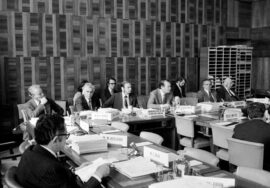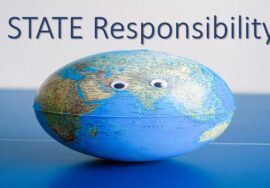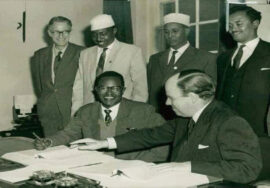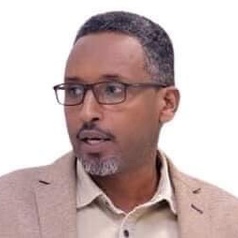
A respond to The Somaliland – Somalia Talks – Somaliland Analysis
A respond to The Somaliland – Somalia Talks – Somaliland Analysis
The dialogue between Somaliland and Somalia in Turkey is considered an act of treason by Somalilanders, who see it as their leaders appeasing a brutal Somalia. The Somaliland people will never forget the Somali military regime’s genocidal acts against women, children, and the elderly in the Isaaq clan-populated cities, and the ethnic cleansing throughout Somaliland from 1980-1988.
Despite appearances, the talks have lacked both substance and urgency, reflecting Somalia’s persistent dishonesty towards its people and Somaliland’s leaders since 1960. Somaliland faces enemies actively seeking to bribe Somaliland’s influential figures, including elders, religious scholars, and business leaders, to infiltrate Somaliland.
Somaliland’s adversaries have relentlessly campaigned against its recognition for over four decades without success. Mogadishu’s policies do not support making agreements with the Somaliland government for peaceful co-existence, such as cooperation on airspace and security.
Given these factors, protracted and arduous negotiations are expected between both sides until Somalia’s aim of conquering Somaliland is met. Securing the Somaliland people’s support requires Somalia and Somaliland to hold more clandestine talks. Somaliland deserves praise for involving opposition figures in its talks; its politicians don’t distinguish between the Somaliland nation integrity and the ruling party. The talks out of the Somalia delegation has also included Somalilanders (from the Darood clan’s minorities in Sool/Sanaag) who oppose Somaliland independence by supporting the federal government view. The roots of conflict between the two sides are buried deep in the Somalia Mafioso mentality, making genuine talks engagement impossible, which Somalia is after taking over the country by dealing with deception and betrayal.
Under the guise of confidence-building, Somalia’s deceitful actions began with a request to Somaliland for the resumption and encouragement of interactions across its academic, business, sports, and cultural sectors.
Somaliland’s greatest threats stem from its cooperation with Somalia on counter-piracy and counter-terrorism efforts, given Somalia’s extensive involvement in these activities.
The complaints of Somaliland were never addressed by Somalia.
1. The union of the Somali Republic in 1960 was deemed illegal due to document manipulation by SYL elites, leading to its failure upon the emergence of Somalia with a new name. This paved the way for the establishment of the Federal Somali government.
2. The Republic of Somaliland became a recognised country on June 26th, 1960, with recognition from 35 international countries.
3. In 1988, Somalia’s military regime perpetrated a genocide, directly killing 50,000 and indirectly causing the deaths of hundreds of thousands more during the exodus of 1.2 million people to Ethiopia between 1988 and 1991.
4. The government of Somalia mines 30% of Somaliland’s territories, causing injuries to thousands of victims, and carried out ethnic cleansing in all regions and districts of Somaliland between 1980 and 1988.
Somalia engaged Puntland in the border region to contest Somaliland’s claim to Sool, Sanaag, and parts of Togdheer.
Somalia’s policies toward Somaliland aim to block Somaliland’s recognition, mirroring the situation in 26th June 1960, by promoting a failed illegal union after 1 July 1960 onwards.
Background
Before its independence on 26th June 1960, Somaliland was a British protectorate. Five days later, Italian Somalia Trusteeship gained independence, and both entities merged, creating the Somali Republic—despite a doctored SYL elite “union document” suggesting annexation of a country; no one would unconditionally relinquish their people’s well-being and trust. Most of the population in Somalia couldn’t comprehend, as they labeled Somalilanders as “Qaldan,” which means erroneous or failure or failed:
- The illegal union started with the first Somalilanders military coup attempt in 1961, and SNM succeeded in 1990 by removing all Somalia government structures from Somaliland territories.
The Somalia diaspora, viewed as an enemy of Somaliland, initially labeled Ethiopia as an adversary of Somalia due to their endorsement of the Republic of Somaliland. Somalia’s account that Ethiopia aimed to destroy its state is untrue; it’s a fantasy fueled by Somalia’s inability to achieve stability. This explains why the Somalia government supports the Darood terrorist movement in Eastern Sool. Somalia propaganda on social media portrays the Republic of Somaliland as SNM. The executive power of Somaliland avoided a crisis when Somalia’s policies aimed to discourage international recognition of Somaliland due to a violent campaign in Laascaanood.
Somalia refuses to admit the 1988 Somaliland genocide, despite international documentation; otherwise, they would’ve launched an all-out war using tribal militias fueled by Darood/Hawiye hatred.
Opportunities
Somaliland has faced a 34-year economic embargo from both Darood and Hawiye presidents, hindering foreign investment.
The Republic of Somaliland has benefitted from African Union’s financial involvement in certain projects. The U.S. and Britain, Somaliland’s closest Western allies, along with seven European Union countries, have invested millions in the territory.
The UAE invested nearly $1 billion in Somaliland, also providing millions in local support for infrastructure companies. Somaliland’s various sectors have seen significant investment from Taiwan in recent times, totaling millions of dollars.
Tensions over talks
The talks proved to be a disaster for the Republic of Somaliland, setting back their recognition by 13 years and hindering their diplomatic efforts. Dialogue has resulted in a commitment to further dialogue.”
These Somaliland-Somalia talks are not worth any amount of money. Somaliland’s population has been denied free FDI for development, military, and security since the failed union of 1991.
Somalia’s reluctance to meet every 90 days indicates a potential victory over Somaliland, but the leaders in Hargeisa lack political acumen or may have compromised their people for financial gain. Somalia and Somaliland politicians fail to show any tangible outcomes from these sporadic meetings.
Conclusion
The Ankara talks were perceived by Somalilanders as a meeting with the enemy-on-enemy soil. Full stop!
Two decades of fruitless, pointless talks.
By Somalia Think Tank Heritage Institute for Policy Studies (ENEMY OF SOMALILAND)










